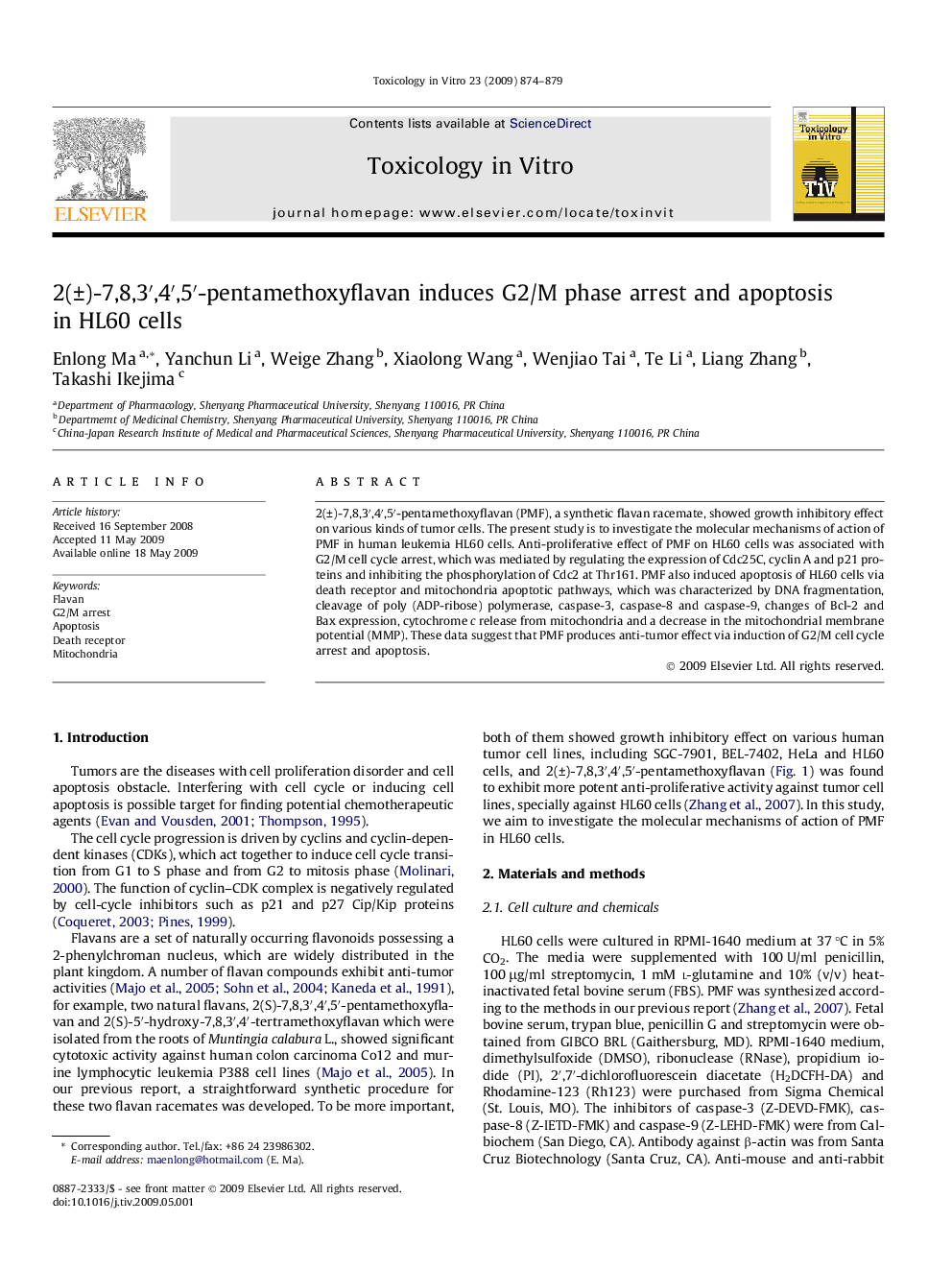| Article ID | Journal | Published Year | Pages | File Type |
|---|---|---|---|---|
| 2603052 | Toxicology in Vitro | 2009 | 6 Pages |
Abstract
2(±)-7,8,3â²,4â²,5â²-pentamethoxyflavan (PMF), a synthetic flavan racemate, showed growth inhibitory effect on various kinds of tumor cells. The present study is to investigate the molecular mechanisms of action of PMF in human leukemia HL60 cells. Anti-proliferative effect of PMF on HL60 cells was associated with G2/M cell cycle arrest, which was mediated by regulating the expression of Cdc25C, cyclin A and p21 proteins and inhibiting the phosphorylation of Cdc2 at Thr161. PMF also induced apoptosis of HL60 cells via death receptor and mitochondria apoptotic pathways, which was characterized by DNA fragmentation, cleavage of poly (ADP-ribose) polymerase, caspase-3, caspase-8 and caspase-9, changes of Bcl-2 and Bax expression, cytochrome c release from mitochondria and a decrease in the mitochondrial membrane potential (MMP). These data suggest that PMF produces anti-tumor effect via induction of G2/M cell cycle arrest and apoptosis.
Related Topics
Life Sciences
Environmental Science
Health, Toxicology and Mutagenesis
Authors
Enlong Ma, Yanchun Li, Weige Zhang, Xiaolong Wang, Wenjiao Tai, Te Li, Liang Zhang, Takashi Ikejima,
